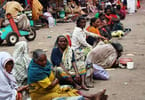News aggregator Huffington Post’s (Huff Post) coverage of voluntourism has been prevalent recently. Based on the articles, it is evident that Cambodia is being touted as a top contender among destinations vying for the growing voluntourist market.
In Huff Post’s “7 Ways to Give Back While You Travel,” #5 on the list is “support social businesses.” Apparently, Cambodia has set quite an example. “In many well-traveled areas of the world, you find tourists who turned into social entrepreneurs with a mission to improve the lives of the local people. They are often businesses like hotels or restaurants that on their own are excellent, but beneath the surface give all their proceeds to a social mission.”
Then, on March 25, 2014, Cambodia once again got Huff Post’s nod as one of “10 Trips That Will Make You a Better Person.” The article stated that orphanage volunteering in Cambodia entails becoming “a mentor and friend to kids who need it.” For the price of $2,356 per person, a voluntourist can “become part of a children’s center’s extended family as you live, work, and play with kids and local staff in an orphanage just outside of Phnom Penh.”
The hefty price is what Global Service Corps charges for a “two-week orphanage care program” where the voluntourist will “help organize games, teach English, and lead sports, art, and dance classes,” according to the Huff Post write-up.
While Huff Post’s altruism is evident, the research to back their recommendation is lacking. The “writers” at the news aggregator website clearly did not do their homework on Cambodia. And it only takes a little bit of digging (or fact-finding, as we call it in the news world) to know that Cambodia has been in the hot seat in the last three years because of orphanage tourism.
As I have pointed out in my previous articles, orphanage tourism has helped catapult the growth of tourism in Cambodia, with foreign arrivals skyrocketing to 250 percent in the same period as the country saw a 75 percent increase in “orphanages.” As a developing country, this is great news for Cambodia’s economy. The only requirement is to keep the supply going in order to keep up with the demand.
The spike in the number of orphanages, however, has landed this Southeast Asian country on the radar of concern for various advocacy groups. Since 2011, the United Nations Children’s Fund (UNICEF) has been sounding the alarm on Cambodia’s orphanages. As did Friends International through its ChildSafe initiative, which aimed to raise awareness “when children become tourist attractions.”
Also in 2011, Al Jazeera News began investigating Cambodia’s orphanages following reports “of orphanages using children with parents to pose as orphans, of wealthy tourists depriving local workers from getting much-needed jobs, and of orphans forming emotional attachments to volunteers and facing more trauma when they leave.”
Forbes.com on May 24, 2013 reported that of the “two million tourists who will pass through Cambodia this year, many aren¹t aware that 71 percent of children in its orphanages still have living parents. They aren¹t orphans in fact, but have been recruited by the centers with promises to parents for better education and care.”
Tourists are being bussed to these so-called orphanages in droves thinking they are doing something good when in fact it is more likely to be doing harm. Even Australian Geraldine Cox, supported by Cambodian Prime Minister Hun Sen, the “Queen of Orphanage Tourism” has said that there are many false places with no effective child care policies in-place. Cox, who heads Children’s Sunrise Villages, registered by Cambodia’s Ministry of Social Affairs, confesses to no professional qualifications in child care, but she is trailblazing what has become a booming business and a questionable way of thriving voluntourism. It is a business model that [even more] unscrupulous others are emulating.
The Ministry of Tourism does not currently have a role in such processes, as confirmed by Cox herself during our interview last January. Tourism is at an all-time high and the Tourism Ministry does not itself have direct authority over the country’s main attractions. Similarly, a lax regulatory climate means that there is little oversight of “orphanages.” Indeed, as Cox admitted, the majority of the children in her homes (she now has three) are not even orphans at all. Only about one third are actual orphans. We are told that the rest of the children come from poor families who cannot look after or educate them.
The problem is who validates such information? And who decides that it is in the best interests of the child to go in to institutionalized care? Many of Cambodia’s visitors come from countries where such maltreatment of children has ended in favor of care in the community instead. One of them is Australia, which The Australian News reports, is currently holding Royal Commission hearings revealing harrowing accounts of abuse over many years in their children’s homes.
The children are exploited and so are well-meaning voluntourists. “John Doe” from Houston, Texas, reads Huff Post’s article and decides he is willing to shell out $2,356 to go to Cambodia with his wife because he feels compelled “to give back.” In his excitement, he puts on a campaign to bring more people with him. He’s confident he can get at least 6 people to go with them. He goes and comes back from the trip blissfully unaware of the statistic, that he is among the 71 percent voluntourists who do not know that that majority of the children he encountered are not really orphans and have at least one, if not both, a living parent.
Children are being paraded as something they are not for monetary gain is akin to a pyramid scheme. The product looks legit, but exploitation is at play. Third World children have it bad enough to be born poor and, for some, exploited through prostitution and trafficking, but to make tourist attractions out of their orphans? Is there question as to whether economics should prevail over the well-being of children who legitimately are in need of care? Therein lies the rub. Is orphanage voluntourism ethical or not? Huff Post thinks its OK, others don’t. Even so, both sides can agree that Cambodia is making bank. Children play mock bonding sessions with numerous strangers adds more to the trauma of being away from their real family and are forced to partake in a fake, yet picture-perfect, family version that conniving entrepreneurs use on their websites to make the world think: Orphans need YOU! In Cambodia’s case, Huff Post really seems to be buying this idea.
Thankfully, there is progress to report from the travel and tourism front on this issue. eTN has received reports that orphanage tourism was brought up during last month’s Ministerial Meeting at this year’s edition of ITB Berlin, the largest annual travel exhibition in the world, held annually in Berlin, Germany. The Ministerial Meeting is one of the most important events during ITB, as it brings together tourism ministers from all over the world to discuss the day’s most pressing concerns. Now that orphanage tourism is on the global tourism agenda, how will Cambodia and other countries that benefit from orphanage tourism act? The jury is out.
WHAT TO TAKE AWAY FROM THIS ARTICLE:
- As I have pointed out in my previous articles, orphanage tourism has helped catapult the growth of tourism in Cambodia, with foreign arrivals skyrocketing to 250 percent in the same period as the country saw a 75 percent increase in “orphanages.
- And it only takes a little bit of digging (or fact-finding, as we call it in the news world) to know that Cambodia has been in the hot seat in the last three years because of orphanage tourism.
- Cox, who heads Children’s Sunrise Villages, registered by Cambodia’s Ministry of Social Affairs, confesses to no professional qualifications in child care, but she is trailblazing what has become a booming business and a questionable way of thriving voluntourism.






















